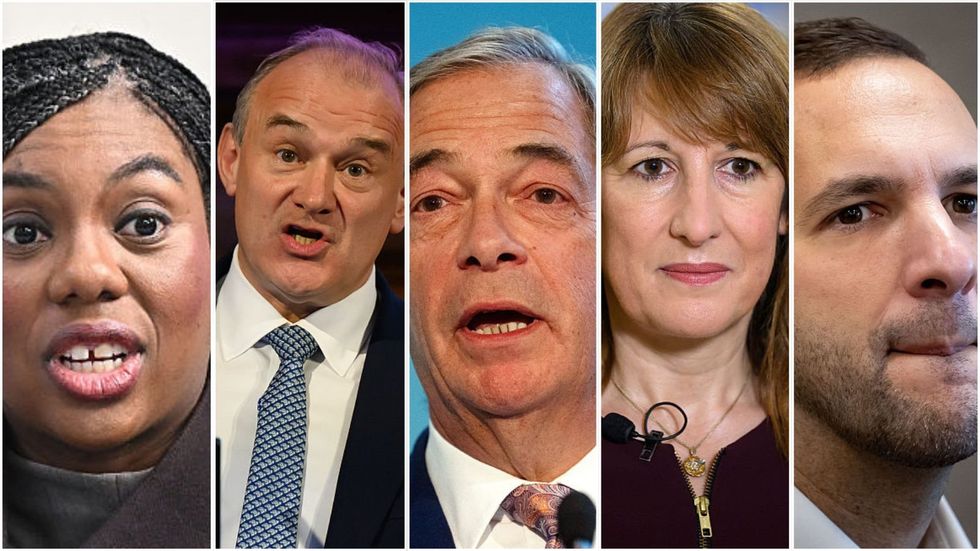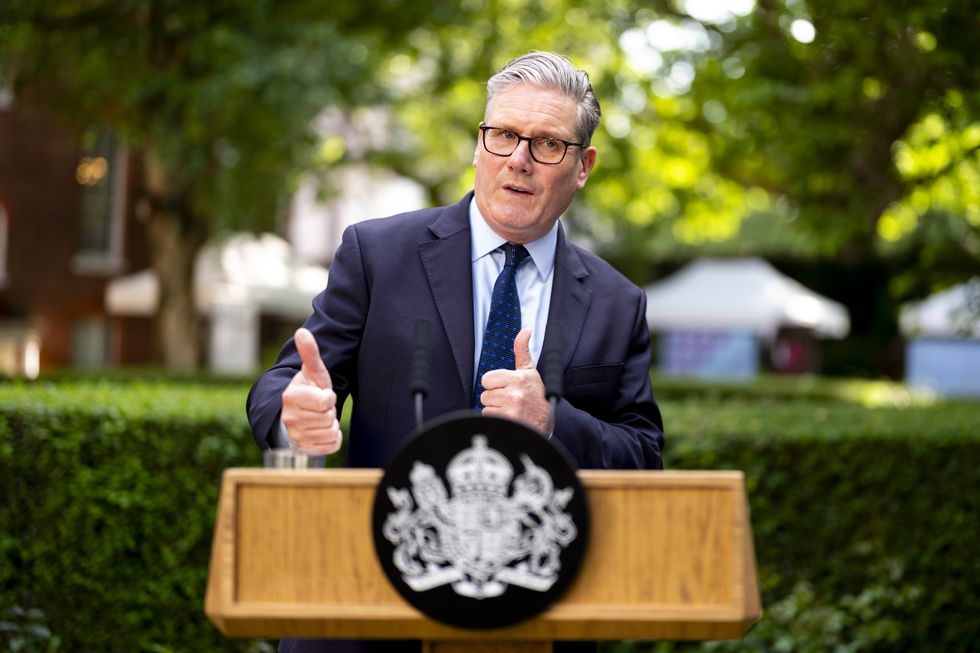Cross-party commitment to the triple lock on state pensions appears increasingly uncertain, with Kemi Badenoch declining to offer long-term guarantees for the policy ahead of the Budget next week.
The triple lock guarantees the state pension rises each year by the highest of three measures: inflation, average earnings growth, or 2.5 per cent.
Ahead of the autumn statement on Wednesday, GB News looks at each parties’ position on the state pension.
The Institute for Fiscal Studies (IFS) says that at next year’s £241-a-week rate, the full new state pension will be £30 a week, or 14 per cent, higher than if it had simply tracked average earnings since 2011.
It notes the triple lock is now adding £12billion a year to government costs, and proposes shifting after the next election to Australia’s model of a “smoothed earnings link.”
The IFS argues the triple lock is expensive, hard to project over the long term, and disproportionately benefits wealthier retirees, who typically live longer.
Conservatives
The Conservative Party’s position on the state pension triple lock has entered uncertain territory after leader leader Kemi Badenoch declined to offer long-term guarantees for the policy.
Ms Badenoch said the party would maintain the mechanism for now but warned this could change depending on economic conditions.
“That moment is not now,” Ms Badenoch said when asked about future reforms, adding: “Let’s see what mess Rachel Reeves leaves for us.”
She defended the triple lock as a Conservative creation designed to protect people who have contributed throughout their working lives.
However, she refused to rule out future changes and linked any decision to Britain’s 0.1 per cent economic growth rate.
Ms Badenoch said: “If we were growing at two to three per cent, you wouldn’t have a problem with pensions.”

LATEST DEVELOPMENTS
- Pensions expert warns Rachel Reeves over proposed £2,000 salary sacrifice cap
- Inheritance tax raid on pensions leaves ‘millions feeling left behind’ – what do you need to know
- State pension disaster looms as 26 million retirees face ‘sharp drop’ in savings if triple lock axed

Labour
The Labour Government has taken a firm position on the triple lock and pledged to keep the mechanism in place.
Chancellor Rachel Reeves has reaffirmed the commitment.
Prime Minister Sir Keir Starmer said the policy “underpins the dignity and security of retirement for everyone who has worked and contributed throughout their lives”.
More than 12 million state pension recipients are expected to be affected by the decision.
The Government’s confirmation follows uncertainty created by the withdrawal of Winter Fuel Payments for many pensioners.
Labour maintains the triple lock remains essential for ensuring predictable retirement income.
Under the policy, pensions rise each April by the highest of inflation, earnings growth or 2.5 per cent.
Liberal Democrats
The Liberal Democrats, who credit themselves with introducing the triple lock during the Coalition, have pledged unwavering support for the policy.
The party criticised proposals for means testing and warned that “older people have already seen Winter Fuel Payments ripped away by the Labour Government and now the Conservatives want to come after their state pension”.
The Lib Dem position emphasises maintaining a universal system that increases incomes for all pensioners.
Reform UK
Reform UK leader Nigel Farage has taken a non-committal approach to the triple lock.
Mr Farage said the issue remains an “open debate” and that his party’s decision will depend on the state of the economy.
He declined to offer a commitment and said: “Not now. Nearer the election.”
Mr Farage acknowledged pensions have risen above inflation, but said this does not mean pensioners are financially secure.
He warned fiscal drag could draw more retirees into the tax system.

Greens
The Green Party supports continuing inflation-linked pension increases.
The party also backs ensuring that pension rises keep pace with wage growth.
Its position centres on maintaining protections for retirees while safeguarding the value of the state pension.
Our Standards:
The GB News Editorial Charter







Follow